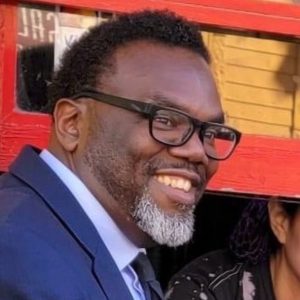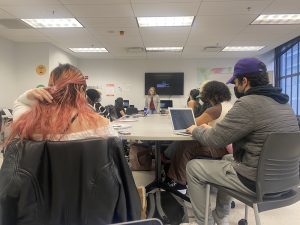
A cheerful, high pitched voice cut through a crowd of people waiting outside of a meeting last month, with a question about shoes.
“I love your shoes. They are my favorite color, purple,” a woman said. “How much did those cost?”
After learning the shoes were $100, the woman shrunk down in her chair in disappointment.
“Well that’s way too much for me, especially since I can’t really use them for walking,” she said, nodding toward her wheelchair.
The woman, Lynne Morris, was one of many disabled citizens who attended Access Living’s town hall meeting in late February to hear about the drastic changes being made to Medicaid.
“I try to compliment people as much as possible, and when I think something positive I say it,” Morris said. “But there is not much I can say about our health care system right now that is either a compliment or positive.”
Gary Arnold, public relations coordinator for Access Living, said the group’s meetings help the mentally and physically disabled understand the ongoing changes in health care. As an agent for social change, Access Living aims to enhance the options available to the disabled community so they may choose and maintain individualized and satisfying lifestyles. Access Living helps to fight for the civil rights of people with disabilities and is fully staffed by a majority of people with disabilities.
“It is very difficult to navigate the health care systems,” Arnold said. “We wish more people would come out to these meetings to hear their options.”
According to Access Living, the major changes in Medicaid that will affect Chicago citizens will be changes in eligibility, options for doctors, access to long-term- and at-home care and how patient care is coordinated.
Fred Friedman, founder of Next Steps, led part of the forum on the negative aspects to our current healthcare system. Friedman discussed the state’s new Smart Act which was signed into law on Jan. 10 and requires patients to get previous authorization if they need to get more than four medications filled. Friedman is a longtime mental health advocate and personally suffers from a severe mental illness as well as several physical illnesses. He personally takes eight medications and the average mentally disabled citizen takes six. According to Friedman the act keeps the disabled from thinking for themselves and making their own decisions.
“We have to be at the table when decisions about us are being made” Friedman said. “We should be the masters of our own fate.”
Friedman urged the audience to write to their legislators so future bills like the Smart Act are not passed.
Related articles
- Funding cuts upset disabled and elderly (chicagotalks.org)













Be First to Comment